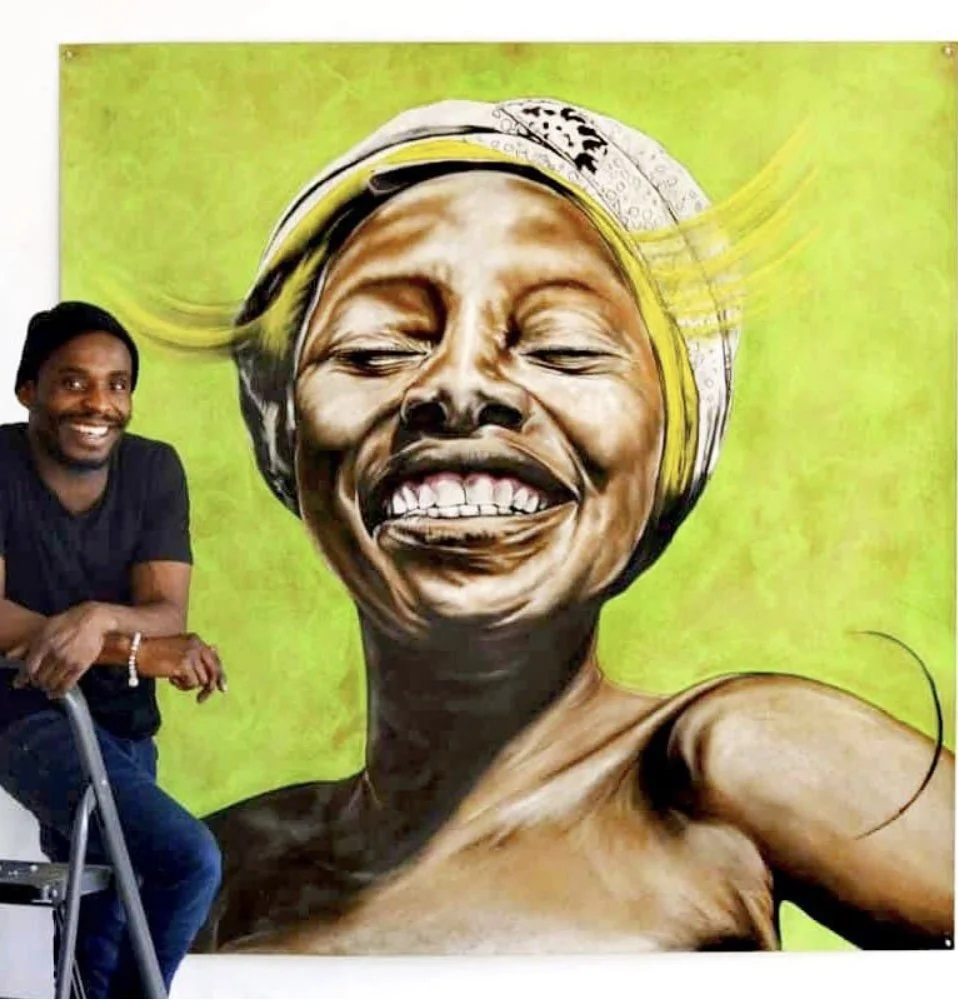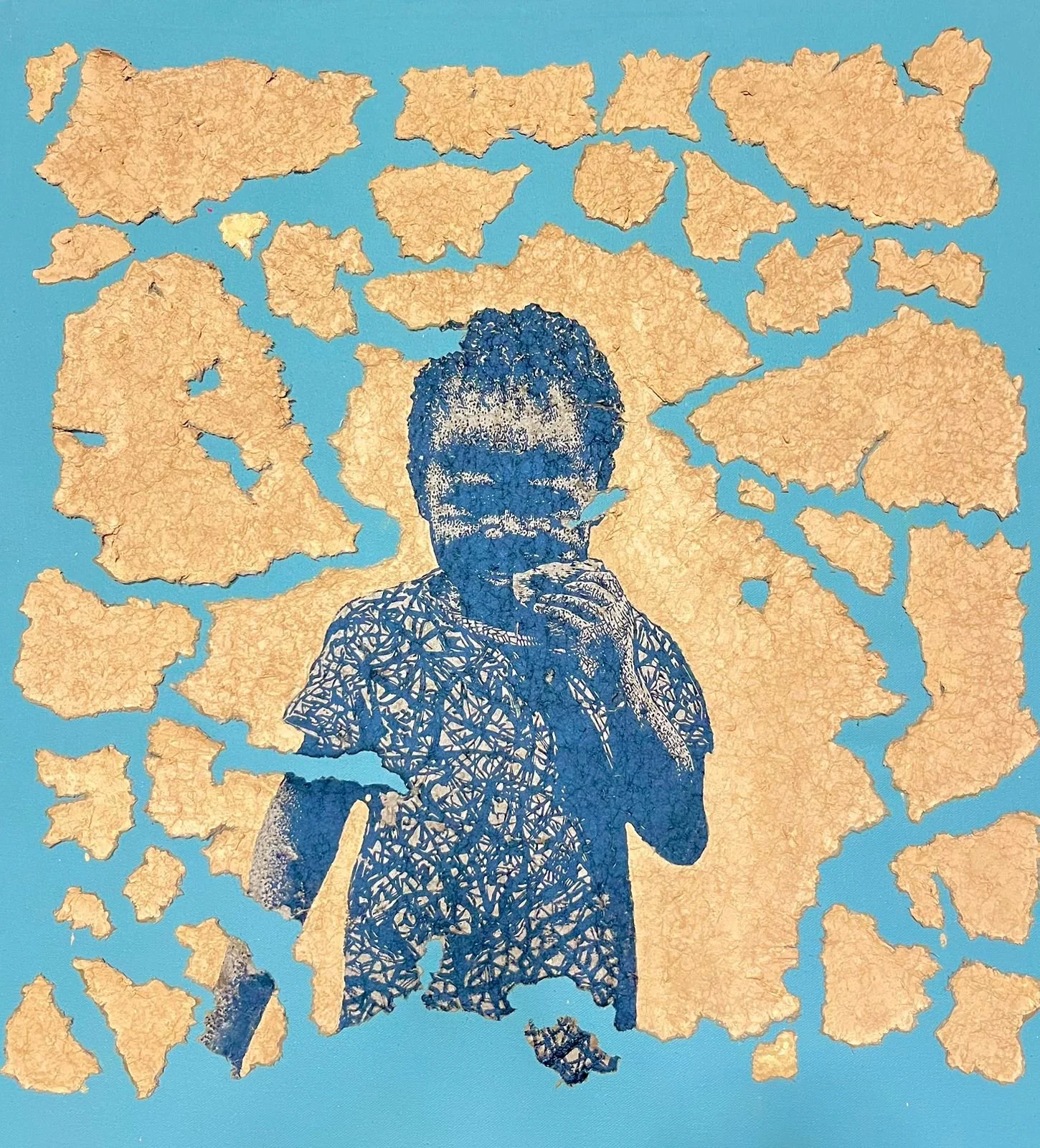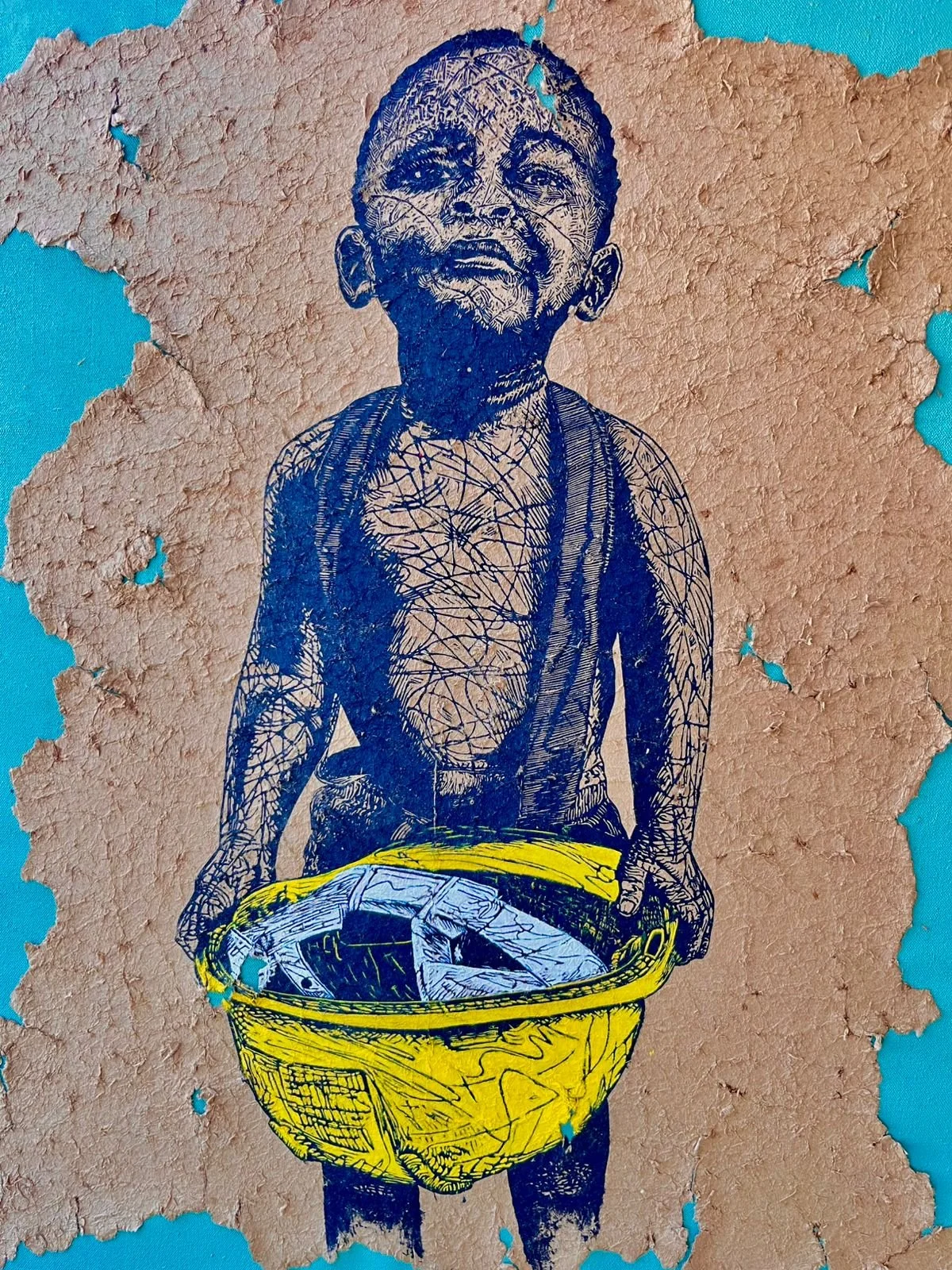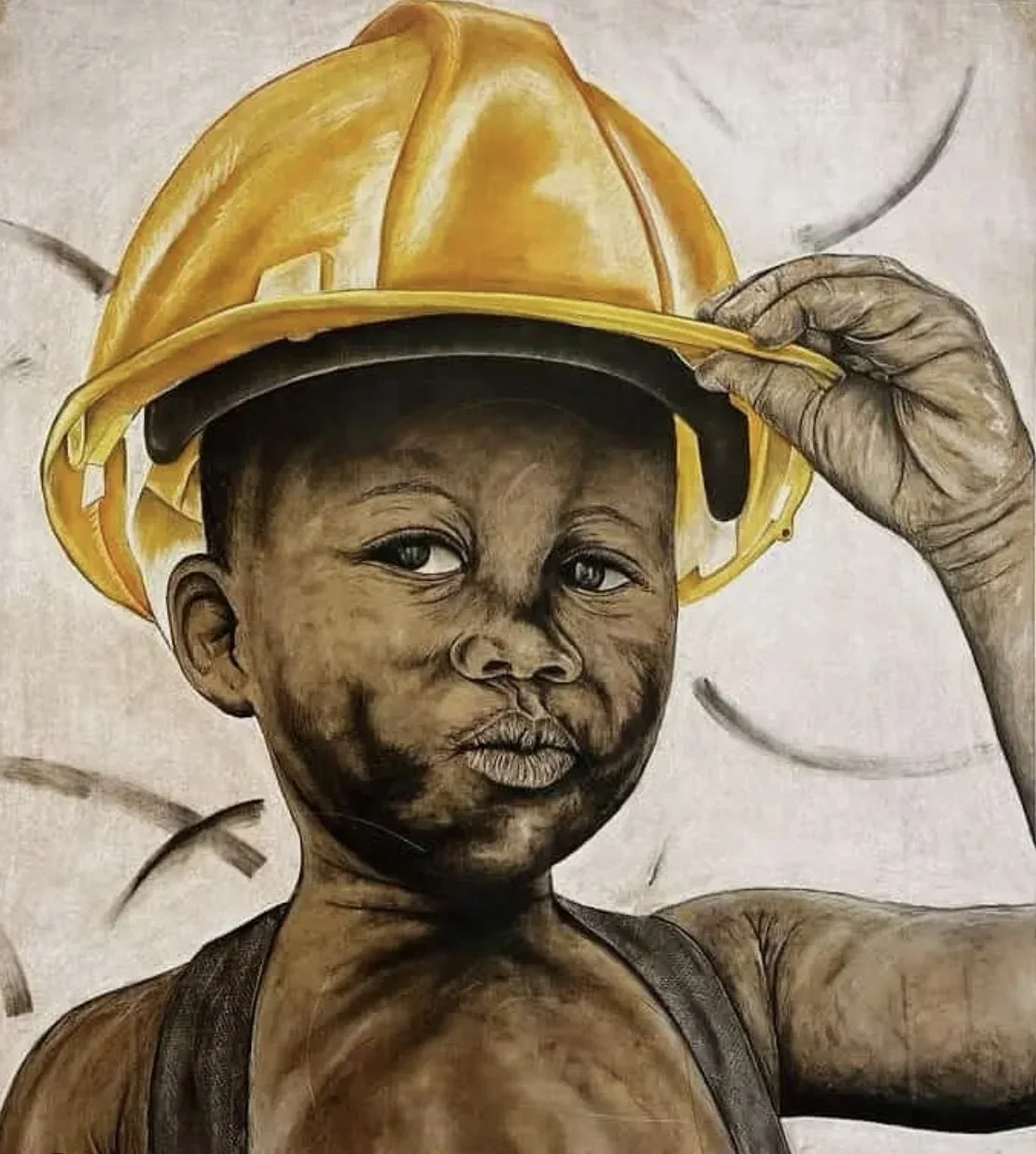Lloyd Maluleke
Exploring Identity, Culture, and Human Experience
My name is Matimu Lloyd Maluleke. As an artist, I have always been drawn to the unsung heroes of everyday life – individuals who work tirelessly to support their families, often in labour-intensive extraction and primary industries. My artistic journey is a deep exploration of identity, culture, and the everyday human experience, with a particular focus on family dynamics and values. Through my work, I aim to tell the story of where I come from - then traditions that shape our lifestyle, as well as connect us.
The materials I use are deeply symbolic. They provide commentary on our relationship with the natural world and our cultural heritage. Many of my works are created on brown handmade paper, reminiscent of cow skin, which serves as a powerful symbol of resilience and endurance. Its earthy tone evokes both the ruggedness of nature and the tenacity of the human spirit. By shaping and manipulating this medium, I seek to convey a sense of innocence and vulnerability while promoting environmental awareness and social consciousness.
In my artwork, Like Father, Like Son, I pay tribute to the resilience and determination of those working in labour-intensive primary sectors like mining and construction. The piece captures a father in a moment of quiet connection with the surroundings. The drawing is evocative of my own childhood as it embodies my early memories and my family struggles. Through this work, I explore themes of perseverance, courage, and reflect on intergenerational relationships, honouring the transmission of knowledge, skills, and values from theelderly to the youngsters.
The use of cow skin-inspired paper carries cultural significance. It provides commentary on social status, identity, and community well-being. Historically, cow skin had multiple practical uses, includingcarrying infants on their mothers’ backs or as bedding. These associations enrich my work with layers of meaning, underscoring the importance of heritage and tradition.
Through my art, I hope to inspire a deeper appreciation of our world and for the role art can play in shaping society. Like Father, Like Son serves as a reminder that even in difficult circumstances, there is always hope for a better future, with sons stepping into the roles played by their fathers. I want my work to resonate with viewers, encouraging them to reflect on their own experiences and find strength in adversity.
Recurring imagery in my work often embodies stories of resilience and strength. The cow-skin-shaped form merges with the rough texture of the paper mirroring the interconnectedness of the journey of life and the world. The figure of a young boy in my linocut print subtly hints on the future of our planet which lies in the hands of the next generation.
My artistic journey also reflects on shared customs and traditions embedded in the concept of Ubuntu (I am because we are) whichdefines who we are as people from Southern Africa, while serving as a platform for environmental and social consciousness. By revisiting my roots and embracing the richness of my heritage, I create work that not only reflects my own identity but also resonates with others in communities beyond mine. Ultimately, my art is about storytelling, and sharing narratives that shape and reflect my understanding of humanity and the world we live in.




